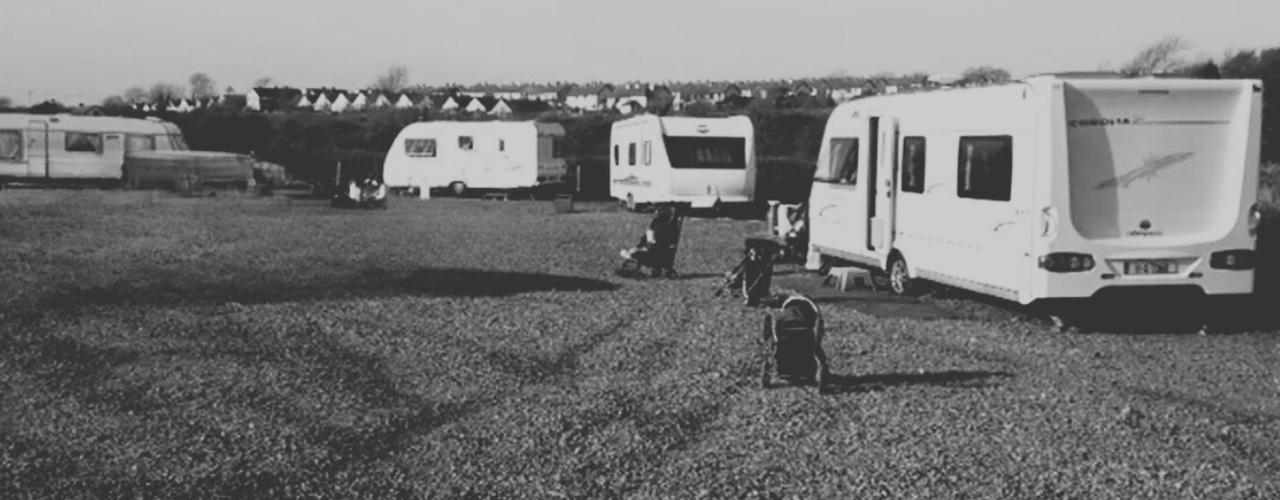
Irish Travellers’ traditional lifestyle was characterised by nomadism until legislation introduced in the 1960s criminalised camping on private land, which made moving around difficult, if not impossible. Today, many Travellers continue to live in trailers while others live in houses. Housing policy and accommodation ‘solutions’ for Travellers are often developed without consultation with representatives of the group and the effect of this has implications which are far-reaching.
Travellers are overrepresented in homelessness emergency accommodation and also comprise part of the ‘hidden homeless’ in Ireland; people who are living in precarious or overcrowded housing. Traveller families with children are often left lingering in emergency family hubs for far longer than families from the settled community before being offered homes. When they are offered homes, these are often inadequate or ill-suited to their needs. Travellers who try to get tenancies in private rented accommodation face discrimination and have applications rejected.
Whether county councils are even committed to housing Travellers at all is questionable. In 2022, just one third of the available government funding for this purpose was used, and seven local authorities – including ones in areas where Travellers were living in informal settlements on the roadside – did not draw down any funding at all. This year, the situation still looks bleak. Dublin City Council has not even begun construction on any new Traveller-specific houses or halting bays since 2019 and in Cork and Kerry local authorities have been accused of “knowingly neglecting” the accommodation requirements of Travellers.
The effects of failing to adequately accommodate Travellers are serious, and can even be fatal. Adequate housing – including serviced halting bays for trailers – are vital for health and wellbeing. Living in poor conditions, such as informal or under-resourced halting sites which do not have proper sanitation and clean water is a threat to physical health, as is living in a trailer without proper heating and ventilation. Travellers in these conditions, and in overcrowded and insecure accommodation (including homelessness hubs) are also vulnerable to the mental health difficulties and strain on relationships that these stressful environments exacerbate.
In 2015 a fire in a ‘temporary’ halting site in Carrickmines, Dublin caused the deaths of ten people, including five children. Safety standards were not adhered to because of an exemption applying to sites which are not considered permanent, the inquest into the deaths was told. The families had been living there since 2008.
Even when in ‘official’ halting sites, the locations of these, on the edge of an urban environment is not conducive to societal participation. The physical segregation of this group limits easy access to schools, hospitals, shops or other necessities.
The difficulties in obtaining accommodation through either private rental sector or from the State, and the lack of provision of secure, adequately resourced halting sites, leave Travellers in a position which affects their ability to fully participate in society. It also has an immense negative impact on their health and wellbeing and also their access to education and employment. Failing to provide Travellers with adequate safe accommodation is another barrier to enabling many of them to escape poverty and have healthy, flourishing lives. The results of this can be seen in the sobering statistics about Travellers and suicide.
Demanding that local authorities and the Government use their funding to provide Traveller-specific accommodation is a good start but to make it effective we as citizens also need to be accountable. A survey by the Claire Byrne show last year revealed that just 37% of respondents said they would be happy to live within a mile of a Traveller halting site. Racism and prejudice are at the root of decisions to keep Travellers at the margins of our towns, cities and society. It would – rightly – be unacceptable to allow this to happen to another ethnic group so why do we tolerate it for Travellers?


